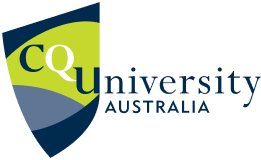Online creativity for confidence and connection
A new CQUniversity-led research study has praised the rich array of arts learning that occurred online during the 2020-2021 COVID-19 lockdown periods in Australia, highlighting the shared strengths of students, parents and teachers.
Results were taken from a national arts learning online survey undertaken earlier this year, from more than 130 responses from primary school students, parents and teachers.
The collaborative analysis, led by chief investigators Dr Linda Lorenza (CQUniversity) and Dr Don Carter (University of Technology Sydney), was undertaken to provide an insight into arts learning activities undertaken online.
The researchers looked at the five arts subjects in the Australian Arts curriculum - music, dance, drama, media arts and visual arts.
Partner investigators were engaged as art form reviewers to provide an analysis on the arts learning activity data. These researchers were: Dr Margaret Baguley (University of Southern Queensland), Dr Leon de Bruin (University of Melbourne), Dr Amanda Levido (Queensland University of Technology), Dr Jeff Meiners (University of South Australia), and Dr Naomi Zouwer (University of Canberra).
Dr Lorenza said the research team were intrigued to hear stories of online learning during the COVID lockdown, and examples of arts learning online during this challenging time.
“Teachers reported having anywhere from one to 950 primary school students in their classes for online learning at home during the COVID-19 lockdowns.
“One teacher, for example, shared that they facilitated 30-minute online meetings with up to 80 plus students live from a possible 125 to 150 students across each year level,” Dr Lorenza said.
“It was interesting to note the diverse experiences of online learning. Some teachers found students who were usually disengaged became motivated, yet others did not even participate.”
She added that the online experience gave teachers some new insights into families as parents engaged in some of the online learning and in some instances the whole family participated.
“Some parents were surprised by the lack of arts from their respective schools, yet other parents were impressed by the resource packs some schools provided, and how the teachers created arts learning online in different art forms,” Dr Lorenza explained.
“Parents reported their children sharing ideas and having discussions with other students online. Some discovered which art forms their children were interested in and how their children used the arts to communicate.”
Dr Lorenza said it was the students who were perhaps most surprised by the changes they observed when they returned to school.
“Most students were excited to return to classroom learning to use their new skills and reconnect with their friends in person.
“Parents’, teachers’ and students’ responses all highlighted the importance of social connection between students, and students’ connection with their teacher when returning to school.”
Overall, the comprehensive analysis revealed that students’ imagination and adaptability, coupled with family involvement and teacher support, created a positive social experience for many students while learning online.
But Dr Lorenza explained that the opportunity for deeper more engaged learning in some of the art forms became apparent.
“These insights are essential to informing our understanding of how arts learning improves primary-aged students’ well-being and self-esteem, reduces stress and anxiety, and develops student socialisation skills.
“Report outcomes will also inspire our development of best practice examples in online arts learning.”
The Stage 1 Initial Findings Report is currently under review by the Australian Primary Principals’ Association and Teacher Associations through the National Advocates for Arts Education (NAAE) with feedback to inform the development of the next stage of the research.
“The next stage is to develop and test examples of online arts learning designed to benefit students’ personal social capability,” Dr Lorenza said.
“This study will help the research team discover how best to assist teachers to engage students in positive collaborative arts learning experiences that contribute to students’ capacity to collaborate, recognise and respect differing perspectives, and develop self-confidence and self-efficacy.
This research project was funded through the Commonwealth Department of Education Emerging Priorities Program.
The Stage 1 Initial Findings Report and information about the research can be found here.


